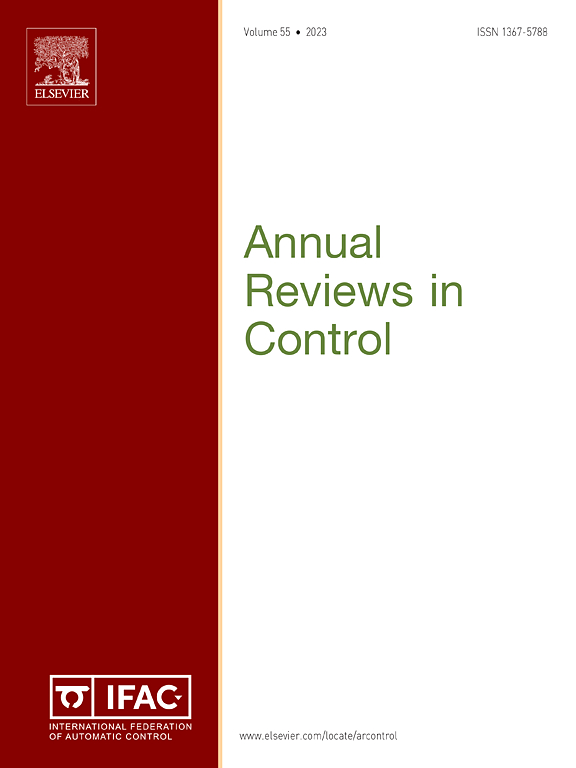A view on learning robust goal-conditioned value functions: Interplay between RL and MPC
IF 10.7
2区 计算机科学
Q1 AUTOMATION & CONTROL SYSTEMS
引用次数: 0
Abstract
Reinforcement learning (RL) and model predictive control (MPC) offer a wealth of distinct approaches for automatic decision-making under uncertainty. Given the impact both fields have had independently across numerous domains, there is growing interest in combining the general-purpose learning capability of RL with the safety and robustness features of MPC. To this end, this paper presents a tutorial-style treatment of RL and MPC, treating them as alternative approaches to solving Markov decision processes. In our formulation, RL aims to learn a global value function through offline exploration in an uncertain environment, whereas MPC constructs a local value function through online optimization. This local–global perspective suggests new ways to design policies that combine robustness and goal-conditioned learning. Robustness is incorporated into the RL and MPC pipelines through a scenario-based approach. Goal-conditioned learning aims to alleviate the burden of engineering a reward function for RL. Combining the two leads to a single policy that unites a robust, high-level RL terminal value function with short-term, scenario-based MPC planning for reliable constraint satisfaction. This approach leverages the benefits of both RL and MPC, the effectiveness of which is demonstrated on classical control benchmarks.
鲁棒目标条件值函数的学习:RL与MPC的相互作用
强化学习(RL)和模型预测控制(MPC)为不确定条件下的自动决策提供了多种不同的方法。考虑到这两个领域在许多领域都具有独立的影响,将RL的通用学习能力与MPC的安全性和鲁棒性相结合的兴趣越来越大。为此,本文提出了RL和MPC的教程式处理,将它们视为解决马尔可夫决策过程的替代方法。在我们的公式中,RL旨在通过在不确定环境下的离线探索学习全局价值函数,而MPC通过在线优化构建局部价值函数。这种局部-全球视角提出了结合鲁棒性和目标条件学习的新策略设计方法。鲁棒性通过基于场景的方法整合到RL和MPC管道中。目标条件学习旨在减轻强化学习中奖励函数的工程化负担。将两者结合起来,就形成了一个单一的策略,该策略将强大的、高水平的RL终端价值功能与短期的、基于场景的MPC规划结合起来,以实现可靠的约束满足。这种方法利用了RL和MPC的优点,其有效性在经典控制基准测试中得到了证明。
本文章由计算机程序翻译,如有差异,请以英文原文为准。
求助全文
约1分钟内获得全文
求助全文
来源期刊

Annual Reviews in Control
工程技术-自动化与控制系统
CiteScore
19.00
自引率
2.10%
发文量
53
审稿时长
36 days
期刊介绍:
The field of Control is changing very fast now with technology-driven “societal grand challenges” and with the deployment of new digital technologies. The aim of Annual Reviews in Control is to provide comprehensive and visionary views of the field of Control, by publishing the following types of review articles:
Survey Article: Review papers on main methodologies or technical advances adding considerable technical value to the state of the art. Note that papers which purely rely on mechanistic searches and lack comprehensive analysis providing a clear contribution to the field will be rejected.
Vision Article: Cutting-edge and emerging topics with visionary perspective on the future of the field or how it will bridge multiple disciplines, and
Tutorial research Article: Fundamental guides for future studies.
 求助内容:
求助内容: 应助结果提醒方式:
应助结果提醒方式:


